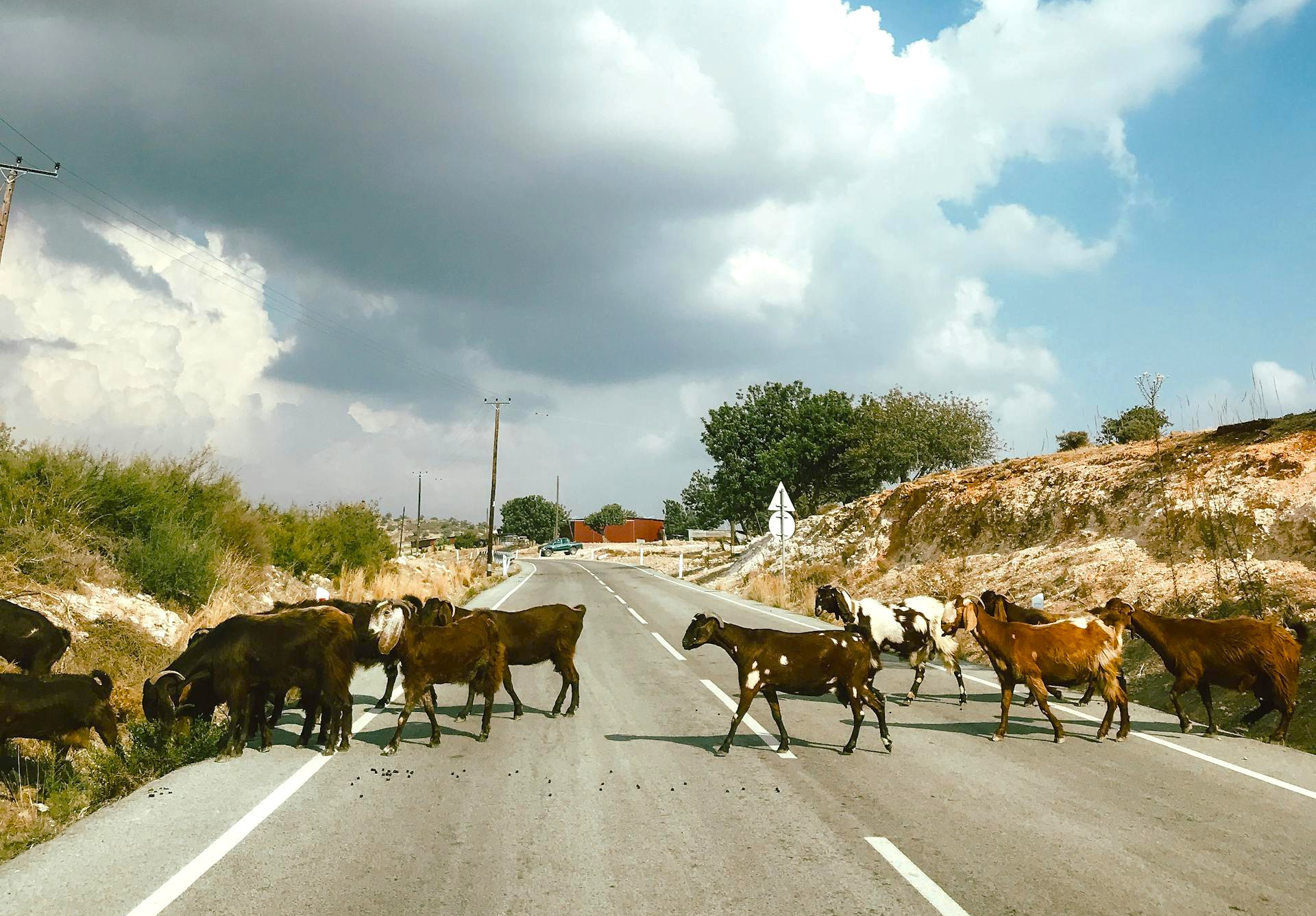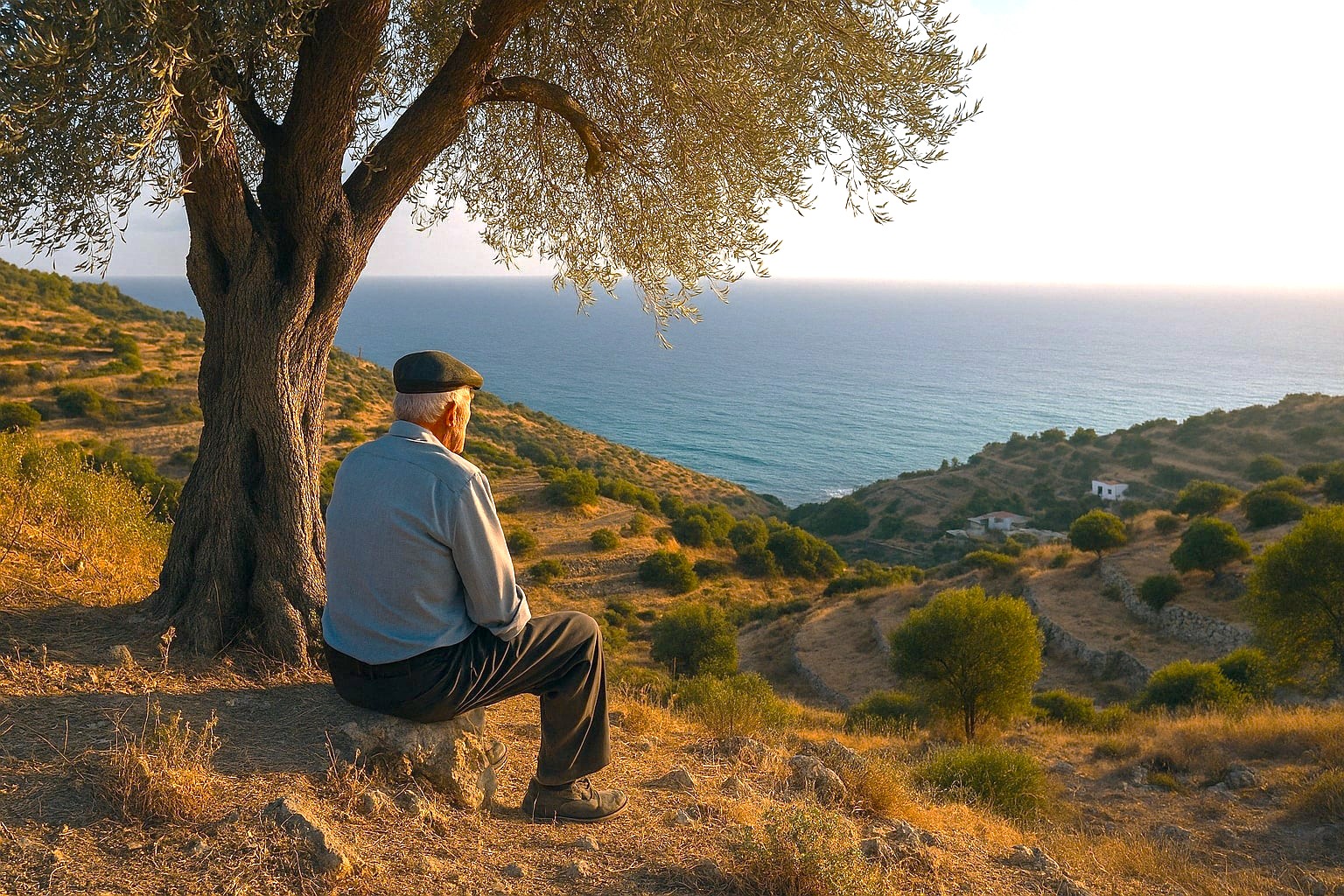‘Old men laughing, a donkey braying, the slap of a flip flop on the pavement. These take me straight back to the island’
Goat bells at daybreak and church bells at midnight. Electric cicadas in afternoon sunlight.
Breezes that rustle through old olive trees. The whisper of Mediterranean seas.
You’ll forgive the parody. But you may also notice the commonality: these are all sounds. And they’re all the sounds of Cyprus. Or, at least, they were…
Our strongest memories of the island are usually the sights and smells: sun on the waves, jasmine on the walls. But sounds are just as important; and Cyprus has – or had – a unique soundscape that says ‘this is home’.
“Split a watermelon, or clink your coffee cup down on the saucer, and suddenly I’m back 50 years, sitting in my yiayia’s courtyard,” says 66-year-old Toronto resident Eleni Michaelides. “It’s like Cyprus has tapped you on the shoulder and whispered ‘remember me?’”
“We were in Cyprus in the 80s,” says 75-year-old David Lennox, now back in Yorkshire. “It was a long time ago now, and lots has happened since then. But every so often, I’ll hear something that transports me: old men laughing, a donkey braying, the slap of a flip flop on the pavement. These take me straight back to the island!”

For those who knew the Cyprus of days past, the island’s soundscape was distinctive. The swish of palm fronds, the itinerant grocer’s loudspeaker (‘fréskes patátes’), the crackle of the charcoal awaiting its souvla; sounds that evoke intense memories – and feelings.
But those sounds are rapidly being overlaid by other, more disruptive noises. (Though, depending on the time of day, the grocer’s van can be rather annoying!)
Globally, our most disliked sounds include squealing brakes, babies crying and electric drills – as well as the infamous chalk on a blackboard. These sounds sit in a frequency range (roughly 2,000 to 4,000 hertz) that the human ear finds particularly sensitive, and often jolt the brain into fear.
Yet look at a list of the most liked sounds and you’ll notice they’re more natural: waves against rocks, rain on the window, purring cats, wind in the trees, hooting owls, and chirping birds – a sound so powerful that studies suggest birdsong can actively lower stress, boost mood, and even aid memory.
The problem is that as we move into the towns and away from the villages (and in Cyprus, two-thirds of us have), we’re depriving ourselves of this natural soundscape. And the benefits it brings…
Ever-growing traffic (over 80 per cent of city dwellers on the island are exposed to unhealthy road traffic noise levels, the second highest percentage in Europe after Luxembourg), relentless construction, and an increasing chorus of howling dogs tend to dominate our soundscapes.
And the quieter sounds of our past – the rustle of cypress, the murmur of the breeze over the hills, the gentle swish of waves – are slowly being drowned out.
Now, this is an issue. Because persistent exposure to noise – especially the kind that’s irregular, high-pitched or man-made – isn’t just irritating. It’s been linked to real consequences: poor sleep, increased stress, even heart disease and cognitive decline. In fact, the World Health Organisation ranks noise as the second-biggest cause of health problems in Europe after air pollution.
That alone should be enough to make us pause. But there’s another, equally important result of our changing soundscape: not only are we affecting ourselves, we’re also affecting the flora and fauna of our island…
“Acoustic ecology,” says Aris Koliniotis, “tells us that sound is part of every living environment – not just something humans experience, but something all creatures depend on.
“When we change the soundscape, we don’t just disrupt our own wellbeing. We disrupt ecosystems. Birds, insects, even plants respond to sound. If those sounds shift too far, or disappear altogether, it throws everything off balance.”
The founder of Cyprus School of Sound, Aris studied acoustic ecology as part of his MSc at City University, and has a unique understanding of how sound affects the environment. And though his daily work involves the more technical side of sound (instructing students in music production, audio engineering, and music composition), he’s also only too aware of the ecological weight of what we hear.
“Sound is never neutral,” he says. “It tells us something about the place we’re in, the people around us, and the health of the environment. Change the soundscape, and you change the ongoing story of a place.”
Acoustic ecology is the study of the relationship between living beings and their environment through sound. It considers not just how we hear the world, but how the world sounds – and how those sounds affect everything from mood to migration. It’s about understanding that every landscape has a soundscape, and when that changes, the balance can shift.
“Human activity,” Aris adds, “has a massive impact on that balance. Traffic, construction, planes overhead – these introduce noise that masks or disrupts natural sounds. And that disruption matters.
“For example, in parts of North America, studies have shown that birds near highways have begun singing at higher pitches and different times of day just to be heard over the traffic. And some species simply leave or die off – altering ecosystems, breeding patterns, and food chains.
“In the ocean,” he adds, “it’s even more extreme: shipping noise and naval sonar interfere with whale and dolphin communication, leading to disorientation, failed navigation, and even mass strandings.”
All of this may feel distant to those of us in the Mediterranean (though anyone who’s ever been bothered by the constant jet ski and speedboat noise in summer will be nodding along in understanding). But the principle is the same.
When the natural sounds of Cyprus are drowned out, we lose more than just peace and quiet. We lose species, habitats, and environment. And we also lose memories, feelings, a sense of place.
Because goat bells, cicadas, the wind through the olive groves aren’t just sounds. They’re some of our favourite things about the island. Our memory. Our identity. The age-old soundtrack of Cyprus.
Maybe we should start to listen more closely. Because, soon enough, what will be left to hear?






Click here to change your cookie preferences